Benjamin Moser at The New Yorker:
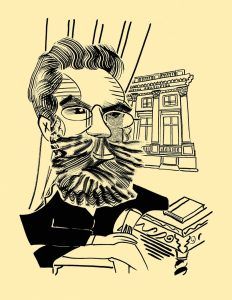 Machado “had a half dozen gestures, habits, and pat phrases,” an early biographer, Lúcia Miguel Pereira, wrote, in 1936. He avoided politics. He was an ideal husband. He spent his free time at the bookshop. And, in founding the Academy of Letters, he brought an administrative structure to literature.
Machado “had a half dozen gestures, habits, and pat phrases,” an early biographer, Lúcia Miguel Pereira, wrote, in 1936. He avoided politics. He was an ideal husband. He spent his free time at the bookshop. And, in founding the Academy of Letters, he brought an administrative structure to literature.
Yet to place this image beside his books is to wonder whether such diligence was a carefully calibrated act—and to see why, despite more than a century’s veneration, the vestment of national spokesman will never quite fit. Machado was too ironic, too mischievous, for the pretentions that the official homages imply. In stories about the polite society of Rio de Janeiro, he managed, with unruffled elegance and composure, to say the most outrageous things. A drag queen might have called this decorous performance “executive realness.”
more here.

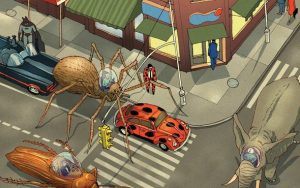 In 1967 British biologist and Nobel laureate Sir Peter Medawar famously characterized science as, in book title form, The Art of the Soluble. “Good scientists study the most important problems they think they can solve. It is, after all, their professional business to solve problems, not merely to grapple with them,” he wrote. For millennia, the greatest minds of our species have grappled to gain purchase on the vertiginous ontological cliffs of three great mysteries—consciousness, free will and God—without ascending anywhere near the thin air of their peaks. Unlike other inscrutable problems, such as the structure of the atom, the molecular basis of replication and the causes of human violence, which have witnessed stunning advancements of enlightenment, these three seem to recede ever further away from understanding, even as we race ever faster to catch them in our scientific nets.
In 1967 British biologist and Nobel laureate Sir Peter Medawar famously characterized science as, in book title form, The Art of the Soluble. “Good scientists study the most important problems they think they can solve. It is, after all, their professional business to solve problems, not merely to grapple with them,” he wrote. For millennia, the greatest minds of our species have grappled to gain purchase on the vertiginous ontological cliffs of three great mysteries—consciousness, free will and God—without ascending anywhere near the thin air of their peaks. Unlike other inscrutable problems, such as the structure of the atom, the molecular basis of replication and the causes of human violence, which have witnessed stunning advancements of enlightenment, these three seem to recede ever further away from understanding, even as we race ever faster to catch them in our scientific nets. Immigrant life easily slips into melodrama. A whiff of blood sausage has me tearfully recalling the evenings when my grandmother cooked it for me. An unexpected “cześć,” or hello, overheard between two fellow Poles immerses me in involuntary memories, as I mourn greetings I shared with high school friends. I never actually liked blood sausage, or high school, and had rejoiced to leave them behind when I moved here. But for a moment, my unconscious fools me, and these recalled sensations compose themselves into a Hallmark card.
Immigrant life easily slips into melodrama. A whiff of blood sausage has me tearfully recalling the evenings when my grandmother cooked it for me. An unexpected “cześć,” or hello, overheard between two fellow Poles immerses me in involuntary memories, as I mourn greetings I shared with high school friends. I never actually liked blood sausage, or high school, and had rejoiced to leave them behind when I moved here. But for a moment, my unconscious fools me, and these recalled sensations compose themselves into a Hallmark card. From the start, the people of Flint, Mich., knew something was wrong with the water coming out of their taps — it was brown and orange, visibly full of particles, frothy and foul-smelling. Their hair started falling out, and showers left their bodies burning with red welts. Their plants and pets began to die. On a hot day, children playing in the spray of a water hydrant were streaked with coffee-colored liquid.
From the start, the people of Flint, Mich., knew something was wrong with the water coming out of their taps — it was brown and orange, visibly full of particles, frothy and foul-smelling. Their hair started falling out, and showers left their bodies burning with red welts. Their plants and pets began to die. On a hot day, children playing in the spray of a water hydrant were streaked with coffee-colored liquid.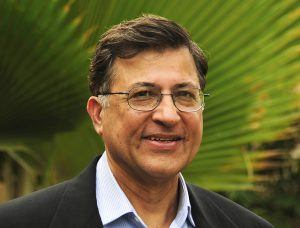 Biased education poisons minds. The curriculum, textbooks, teachers and exams all act to create an ‘us’ versus ‘them’ mentality. Islam is shown as under siege by the evil West as well as India. And then there’s the electronic and print media – mostly privately owned – which drips with piety and with conspiracy theories that attribute all our ills to India, Israel and the United States. It seizes upon their every fault and then multiplies by ten. So a mindset is created wherein young people imagine that they, and their religion, are beset by enemies lurking behind every bush. The West is excoriated for being selective and hypocritical – which it surely is. But there’s no introspection, no explanation for how we went wrong. Ask a student why East Pakistan broke off to become Bangladesh and you’ll get the pat answer: it was a Hindu conspiracy. They won’t know of the genocide West Pakistan carried out there in 1971.
Biased education poisons minds. The curriculum, textbooks, teachers and exams all act to create an ‘us’ versus ‘them’ mentality. Islam is shown as under siege by the evil West as well as India. And then there’s the electronic and print media – mostly privately owned – which drips with piety and with conspiracy theories that attribute all our ills to India, Israel and the United States. It seizes upon their every fault and then multiplies by ten. So a mindset is created wherein young people imagine that they, and their religion, are beset by enemies lurking behind every bush. The West is excoriated for being selective and hypocritical – which it surely is. But there’s no introspection, no explanation for how we went wrong. Ask a student why East Pakistan broke off to become Bangladesh and you’ll get the pat answer: it was a Hindu conspiracy. They won’t know of the genocide West Pakistan carried out there in 1971.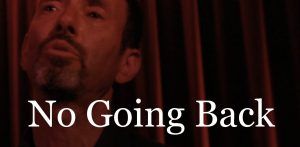 In 1973, a 22-year-old named Jonathan Richman wrote a letter to the editor of Creem. The Detroit magazine, which started in 1969 when both New Journalism and the archetype of the music critic were solidifying in the consciousness of American counterculture, was an iconic purveyor of rock ‘n’ roll criticism and culture. It had recently run a short, positive notice about Richman’s band, the Modern Lovers, whose fast, angry guitar music had given them a reputation in their native Boston. With its signature hopscotch of irony and humor, Creem synthesized the Lovers’ sound: “More than a little like a teenage Velvet Underground.” The magazine called one of their songs, “a guaranteed hit single” and another, “possibly the next national anthem.” Creem’s kidding aside, by most metrics, the Modern Lovers were in a good place in 1973. John Cale, legendary member of the Velvet Underground, was producing the Lovers’ debut album for Warner Brothers when their singer decided to write a letter to Creem.
In 1973, a 22-year-old named Jonathan Richman wrote a letter to the editor of Creem. The Detroit magazine, which started in 1969 when both New Journalism and the archetype of the music critic were solidifying in the consciousness of American counterculture, was an iconic purveyor of rock ‘n’ roll criticism and culture. It had recently run a short, positive notice about Richman’s band, the Modern Lovers, whose fast, angry guitar music had given them a reputation in their native Boston. With its signature hopscotch of irony and humor, Creem synthesized the Lovers’ sound: “More than a little like a teenage Velvet Underground.” The magazine called one of their songs, “a guaranteed hit single” and another, “possibly the next national anthem.” Creem’s kidding aside, by most metrics, the Modern Lovers were in a good place in 1973. John Cale, legendary member of the Velvet Underground, was producing the Lovers’ debut album for Warner Brothers when their singer decided to write a letter to Creem. Lovers of a spare prose style, not to mention tight plotting, may be disappointed by Bruno Schulz:
Lovers of a spare prose style, not to mention tight plotting, may be disappointed by Bruno Schulz: To read a novel by D. H. Lawrence is to acquire – not always without resistance – a language of the feelings that is new to us: words we thought we knew well already are made to work in unexpected ways, locating places in the human heart we didn’t know existed, even changing what we understand by human nature. What else, we now ask, were those words ever for? To read Henry James is to inhabit an unaccustomed grammar of thought. Some readers find James’s style tortuous; but those snaking parentheses sharpen our wits; without them we will not keep up with the moral quandaries and vacillations of his characters. They are markers, not just of our penetration, but of our emotional largesse. We are inclined to believe it’s the characters in a novel that extend our sympathies. “We are all of us born in moral stupidity”, George Eliot tells us, whereupon, chastened, we practise acts of reflective empathy on Mr Casaubon. But it is truer to say that it is first of all a novel’s language – its syntactical orchestration of our thinking and feeling faculties – that enables us to go where George Eliot wants us to go, to conceive another person’s equivalence of self with what she rather wonderfully calls “that distinctness which is no longer reflection but feeling”.
To read a novel by D. H. Lawrence is to acquire – not always without resistance – a language of the feelings that is new to us: words we thought we knew well already are made to work in unexpected ways, locating places in the human heart we didn’t know existed, even changing what we understand by human nature. What else, we now ask, were those words ever for? To read Henry James is to inhabit an unaccustomed grammar of thought. Some readers find James’s style tortuous; but those snaking parentheses sharpen our wits; without them we will not keep up with the moral quandaries and vacillations of his characters. They are markers, not just of our penetration, but of our emotional largesse. We are inclined to believe it’s the characters in a novel that extend our sympathies. “We are all of us born in moral stupidity”, George Eliot tells us, whereupon, chastened, we practise acts of reflective empathy on Mr Casaubon. But it is truer to say that it is first of all a novel’s language – its syntactical orchestration of our thinking and feeling faculties – that enables us to go where George Eliot wants us to go, to conceive another person’s equivalence of self with what she rather wonderfully calls “that distinctness which is no longer reflection but feeling”. T
T When Georgia Bowen was born by emergency cesarean on May 18, she took a breath, threw her arms in the air, cried twice, and went into cardiac arrest. The baby had had a heart attack, most likely while she was still in the womb. Her heart was profoundly damaged; a large portion of the muscle was dead, or nearly so, leading to the cardiac arrest. Doctors kept her alive with a cumbersome machine that did the work of her heart and lungs. The physicians moved her from Massachusetts General Hospital, where she was born, to Boston Children’s Hospital and decided to try an experimental procedure that had never before been attempted in a human being following a heart attack. They would take a billion mitochondria — the energy factories found in every cell in the body — from a small plug of Georgia’s healthy abdominalmuscle and infuse them into the injured muscle of her heart. Mitochondria are tiny organelles that fuel the operation of the cell, and they are among the first parts of the cell to die when it is deprived of oxygen-rich blood. Once they are lost, the cell itself dies. But a series of experiments has found that fresh mitochondria can revive flagging cells and enable them to quickly recover.
When Georgia Bowen was born by emergency cesarean on May 18, she took a breath, threw her arms in the air, cried twice, and went into cardiac arrest. The baby had had a heart attack, most likely while she was still in the womb. Her heart was profoundly damaged; a large portion of the muscle was dead, or nearly so, leading to the cardiac arrest. Doctors kept her alive with a cumbersome machine that did the work of her heart and lungs. The physicians moved her from Massachusetts General Hospital, where she was born, to Boston Children’s Hospital and decided to try an experimental procedure that had never before been attempted in a human being following a heart attack. They would take a billion mitochondria — the energy factories found in every cell in the body — from a small plug of Georgia’s healthy abdominalmuscle and infuse them into the injured muscle of her heart. Mitochondria are tiny organelles that fuel the operation of the cell, and they are among the first parts of the cell to die when it is deprived of oxygen-rich blood. Once they are lost, the cell itself dies. But a series of experiments has found that fresh mitochondria can revive flagging cells and enable them to quickly recover.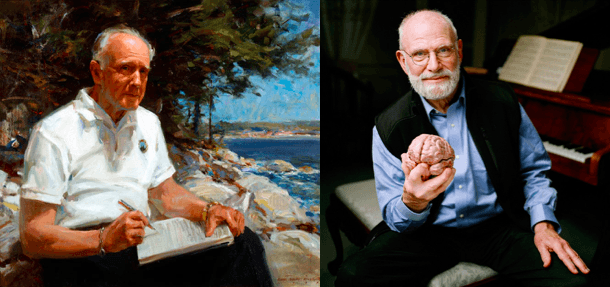

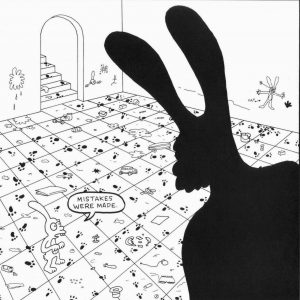

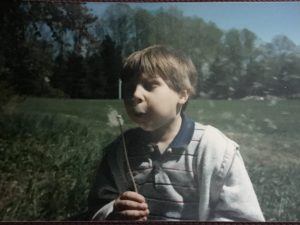 It turns out you learn a lot when you write a book. This may seem counterintuitive. Perhaps you think, “Well, that’s dumb. If you write a book about something you should already be an expert on it.”
It turns out you learn a lot when you write a book. This may seem counterintuitive. Perhaps you think, “Well, that’s dumb. If you write a book about something you should already be an expert on it.”